A lack of transparency in the two departments at the heart of Brexit suggests the public cannot get hold of information about some of the most important activity in government at the moment, argues Aron Cheung.
The most recent Freedom of Information data offers little reassurance that departments are taking transparency seriously.
DExEU and Cabinet Office granted less than one in six Freedom of Information requests in full
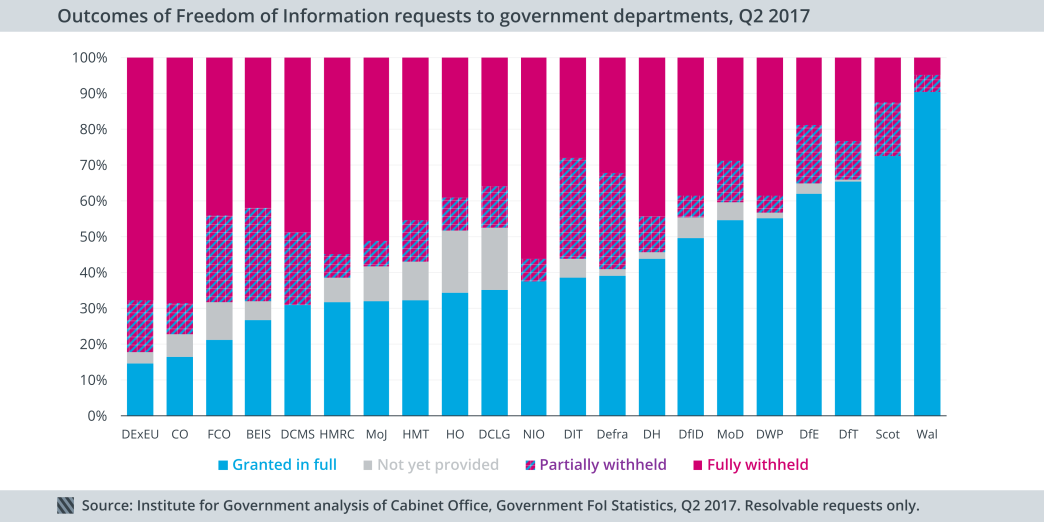
In the three months following the triggering of Article 50, the Department for Exiting the EU (DExEU) granted only 15% of Freedom of Information (FoI) requests in full. While this is up slightly from the 10% of requests that it granted in Q1 2017, it is still lower than any other department. Requests were fully refused 68% of the time.
The Cabinet Office – ironically the department responsible for Freedom of Information policy - granted the second lowest proportion of requests, with 17% of requests fully granted and 69% fully withheld.
Both DExEU and Cabinet Office play an important role in coordinating government and Cabinet Office has been elevated to play a greater role in Brexit negotiations with the move of Olly Robbins from DExEU to head negotiations as the Prime Minister’s adviser. The lack of transparency in both departments suggests that the public cannot get hold of information about some of the most important activity in government at the moment.
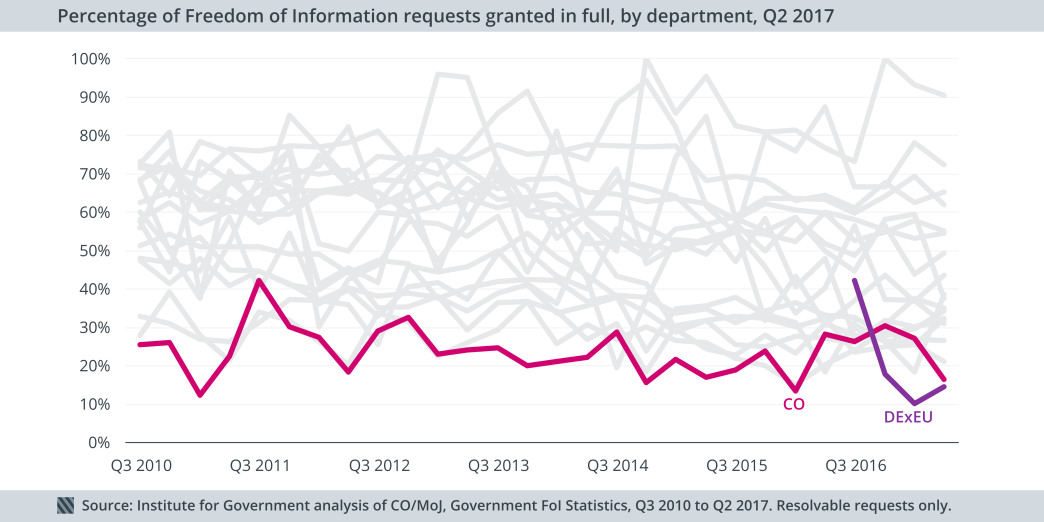
Since 2010, Cabinet Office has been the department that granted the lowest proportion of FoI requests - and it is also the department most likely to see its decisions appealed. Even given this fact, in the last quarter there has been a notable drop in requests being granted, from 27% to 17%.
After DExEU was established in July 2016, it quickly supplanted Cabinet Office to establish itself as the least transparent government department.
The percentage of Freedom of Information requests being refused has risen
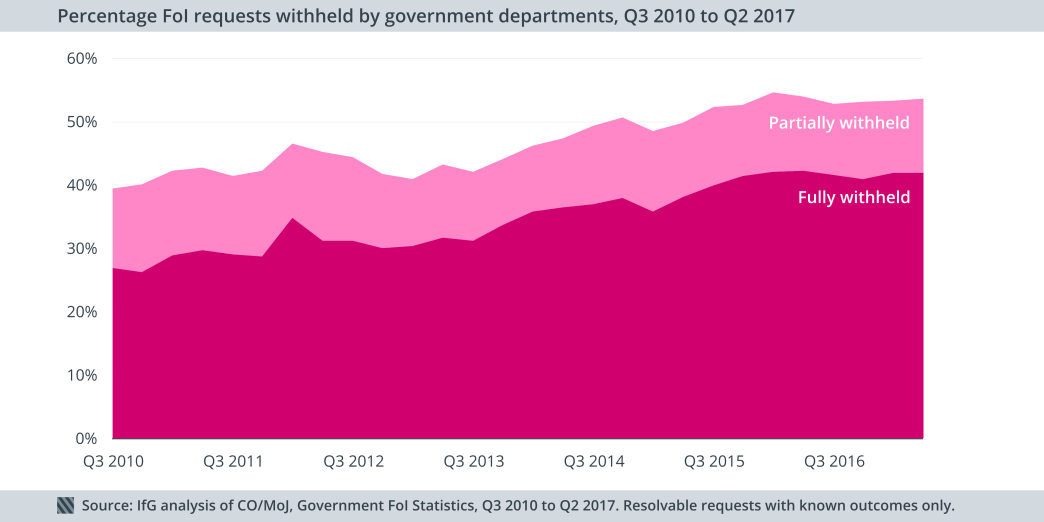
Overall, government departments now withhold more information than they did in 2010. In Q3 2010, after the Coalition Government came to power, 39% of FoI requests resulted in information being fully or partially withheld. This has now increased to 54%.
One in five Freedom of Information requests rejected by DExEU were considered ‘vexatious’
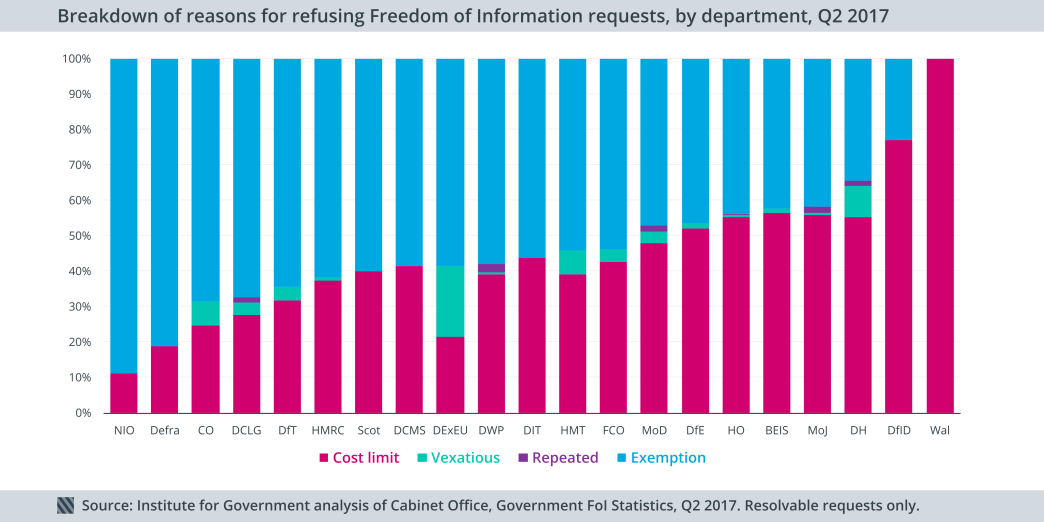
Across the whole of government, most FoI requests that result in information being withheld are refused either because complying with the requests would cost more than £600, or because one of the various exemptions outlined in the Freedom of Information Act 2000 applies. In Q2 2017, these two reasons accounted for 96.5% of refused requests.
Information can also be withheld if an FoI request is considered vexatious, meaning that complying with the request is “likely to cause a disproportionate or unjustifiable level of distress, disruption or irritation”. This reason is not used very often. Vexatious requests have accounted for only 1.9% of refused FoI requests since 2010. In the last quarter, however, they accounted for 20% of the requests refused by DExEU. It is unclear whether this is because department is more likely to receive vexatious requests, or whether its attitude towards handling FoI requests is different.
The timeliness of Freedom of Information responses has improved, but some departments are still struggling
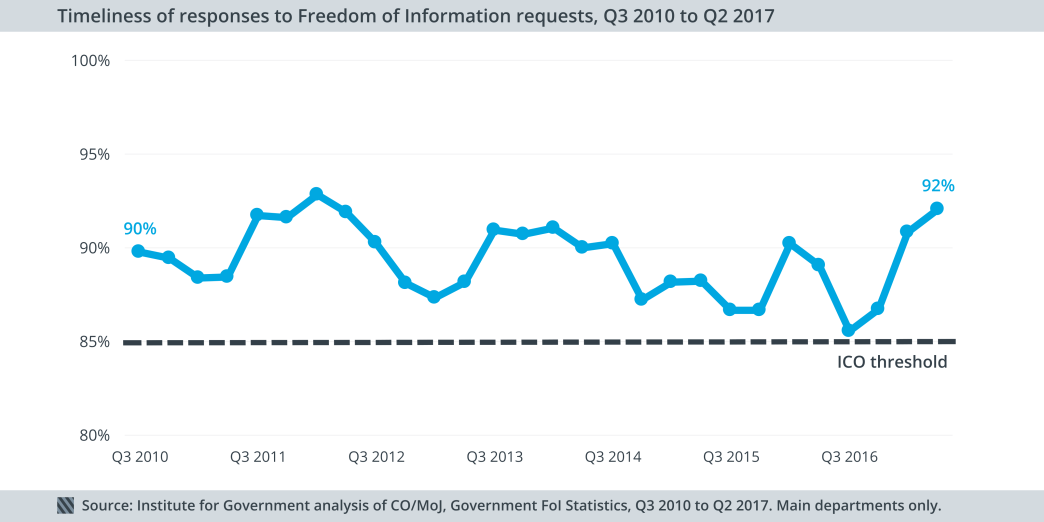
While government departments have become more secretive in their response to FoI requests, they have at least become more timely in responding. In Q2 2017, 92% of requests received a timely response, up slightly from 91% in the previous quarter. Since Q3 2010, the timeliness of responses to FoI requests have held largely steady, fluctuating between 86% and 93%.
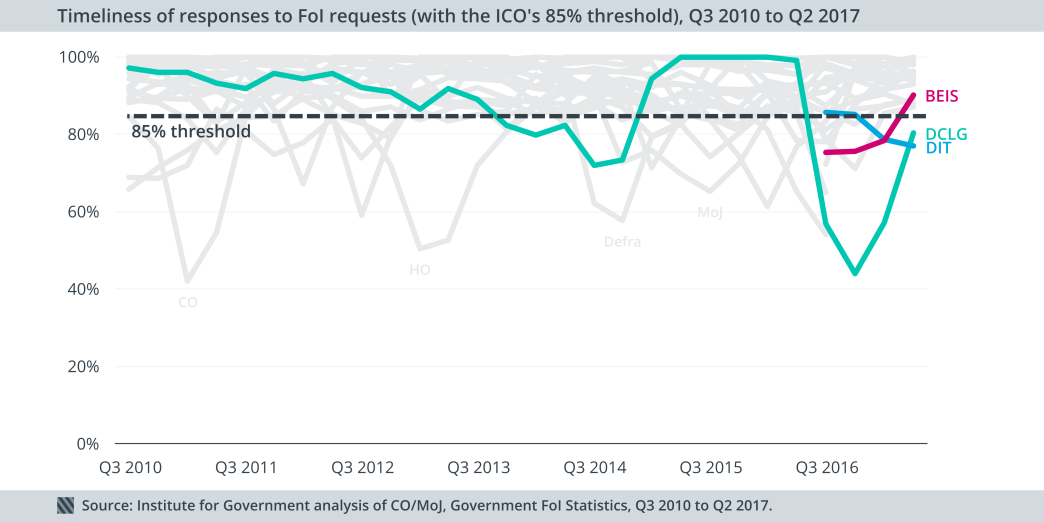
The Information Commissioner’s Office (ICO) has set a target for 85% of responses to FoI requests to be on time, and departments consistently falling below that threshold can find themselves subject to special monitoring.
In the most recent quarter, two departments – the Department for International Trade (DIT) and the Department for Communities and Local Government (DCLG) – fell short, as they did in the previous quarter. DCLG has seriously struggled with providing timely responses for the past year, and while the department’s performance has improved, it is still below the ICO’s target.
The Department for Business, Energy, and Industrial Strategy (BEIS) climbed above the 85% threshold for the first time this quarter, possibly reflecting a more mature process at a relatively new department.
DWP received more FoI requests. MoJ, HMRC, and DH received fewer
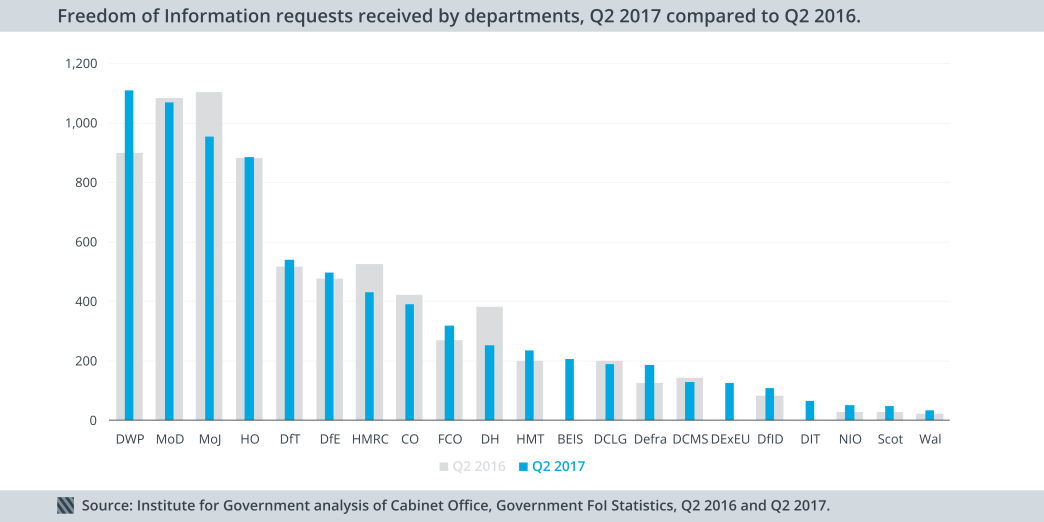
Government departments received 7,830 FoI requests in Q2 2017, just 0.4% more than in the same quarter last year. At the departmental level, the Department for Work and Pensions (DWP) received 23% more requests and the Foreign and Commonwealth Office (FCO) 18% more. Meanwhile the number of requests received fell by 14% at the Ministry of Justice (MoJ), 18% at HM Revenue and Customs (HMRC) and 34% at the Department of Health (DH).
- Supporting document
- Whitehall monitor 17.pdf (PDF, 2.17 MB)
- Topic
- Brexit